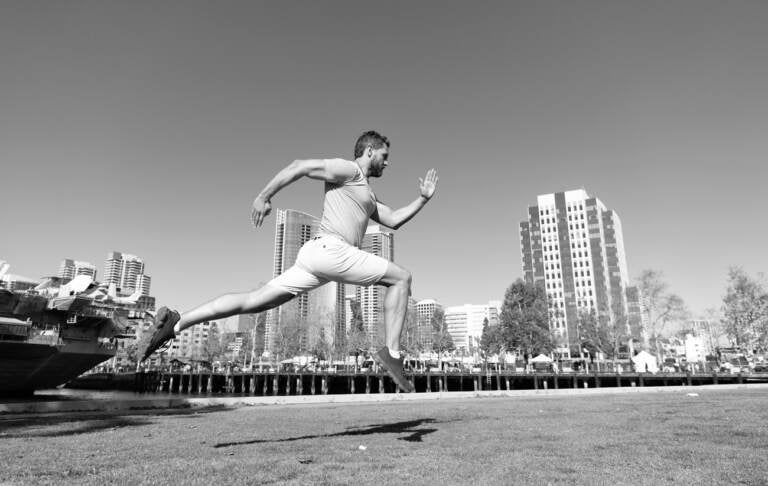How Science is Changing Sports
Listen 48:55
(Red Fox Studio/Big Stock)
Science is constantly propelling athletes to run faster, jump higher, push harder, and break records. Scientific advances have become such a big part of competitions that some critics say innovation is beginning to overshadow athleticism. On this episode, we explore the different ways in which science is shaping sports. We hear stories about high-tech gear and equipment, like running shoes with soles that contain highly-engineered foam, and find out how neuroscientists are trying to get into athletes’ heads to measure their performance. Also, how athletes are harnessing emotions for the win, and a look at the future of “robot umpires.”
Also heard on this week’s episode:
- In 2019, long-distance runner Eliud Kipchoge accomplished something almost no one thought possible — running a full marathon in under two hours. But in the weeks and months after the run, a growing chorus of voices protested that the feat didn’t truly count. The reason? Kipchoge’s shoes. Reporter Liz Tung looks into Nike’s controversial “super shoes” that have runners smashing world records.
- In baseball, umpires make controversial and sometimes game-changing decisions. In 2019, the Atlantic League made headlines when they started using robot umpires – to call balls and strikes. Could robot umps take human error out of these calls? Or would it take the tension — and some of the fun out of the game? Alan Yu looked into it.
- We talk with science writer Jennifer Swanson about how high-tech gear continues to transform sports, ranging from tennis to golf. Her book is “The Secret Science of Sports: The Math, Physics, and Mechanical Engineering Behind Every Grand Slam, Triple Axel, and Penalty Kick.”
- Taylor Johnson coaches esports athletes, after a career working in the NFL. He says coaching people who compete in video games means analyzing a ton of data from each game, and helping players optimize their focus and reaction times.
- Author Zach Schonbrun discusses how neuroscientists are trying to get into athletes’ heads to see what is going on in their brains as they compete. For his book, “The Performance Cortex: How Neuroscience is Redefining Athletic Genius,” Schonbrun observed experiments with baseball players that shed some light on their decision-making process and speed.
Segments from this episode
WHYY is your source for fact-based, in-depth journalism and information. As a nonprofit organization, we rely on financial support from readers like you. Please give today.






